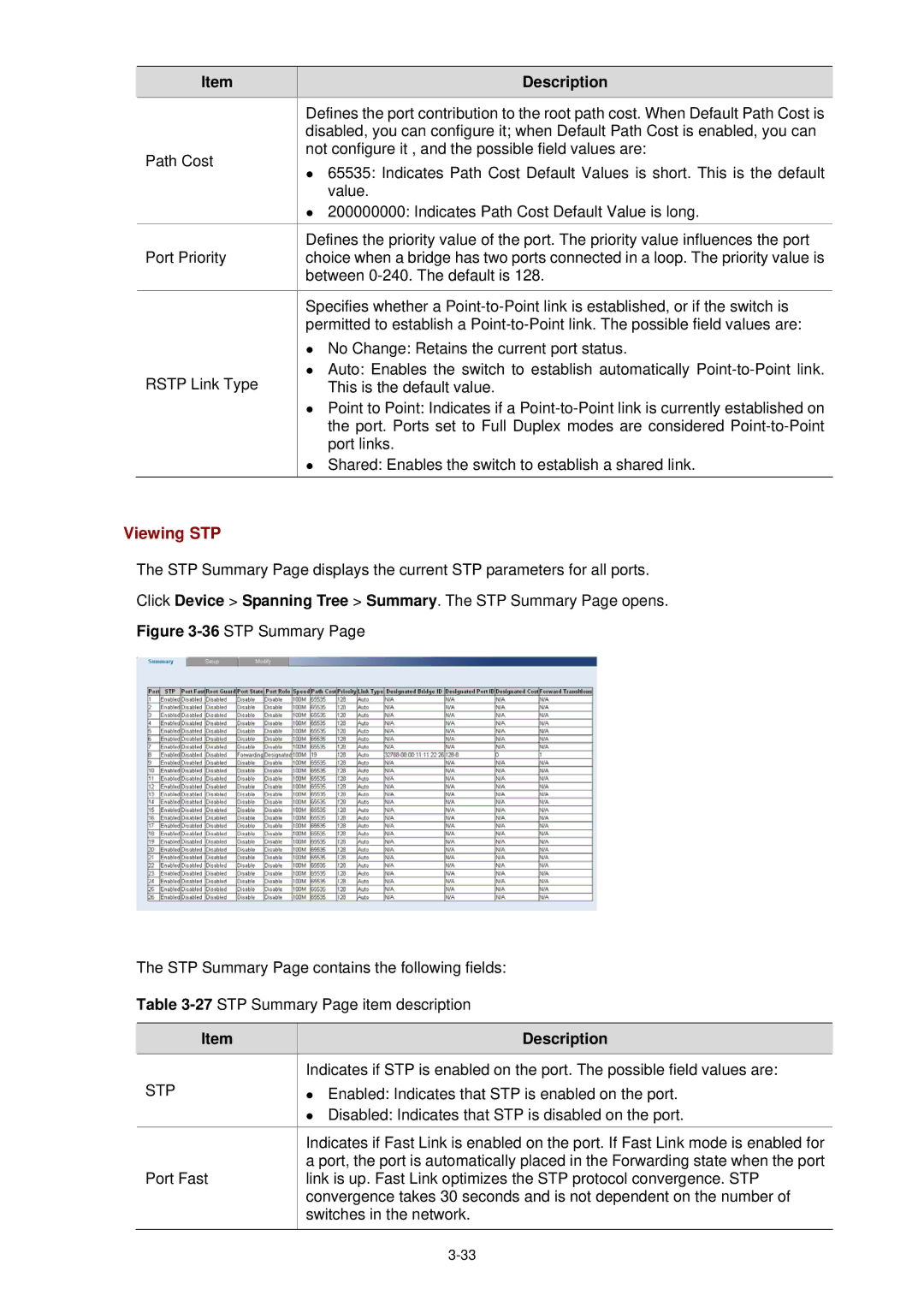
| Item |
| Description |
|
|
| Defines the port contribution to the root path cost. When Default Path Cost is |
|
|
| disabled, you can configure it; when Default Path Cost is enabled, you can |
| Path Cost |
| not configure it , and the possible field values are: |
|
| z 65535: Indicates Path Cost Default Values is short. This is the default | |
|
|
| |
|
|
| value. |
|
|
| z 200000000: Indicates Path Cost Default Value is long. |
|
|
| Defines the priority value of the port. The priority value influences the port |
| Port Priority |
| choice when a bridge has two ports connected in a loop. The priority value is |
|
|
| between |
|
|
|
|
|
|
| Specifies whether a |
|
|
| permitted to establish a |
|
|
| z No Change: Retains the current port status. |
| RSTP Link Type |
| z Auto: Enables the switch to establish automatically |
|
| This is the default value. | |
|
|
| z Point to Point: Indicates if a |
|
|
| the port. Ports set to Full Duplex modes are considered |
|
|
| port links. |
|
|
| z Shared: Enables the switch to establish a shared link. |
|
|
|
|
Viewing STP
The STP Summary Page displays the current STP parameters for all ports.
Click Device > Spanning Tree > Summary. The STP Summary Page opens.
Figure 3-36 STP Summary Page
The STP Summary Page contains the following fields:
Table 3-27 STP Summary Page item description
Item | Description |
| Indicates if STP is enabled on the port. The possible field values are: |
STP | z Enabled: Indicates that STP is enabled on the port. |
| z Disabled: Indicates that STP is disabled on the port. |
| Indicates if Fast Link is enabled on the port. If Fast Link mode is enabled for |
Port Fast | a port, the port is automatically placed in the Forwarding state when the port |
link is up. Fast Link optimizes the STP protocol convergence. STP | |
| convergence takes 30 seconds and is not dependent on the number of |
| switches in the network. |
|
